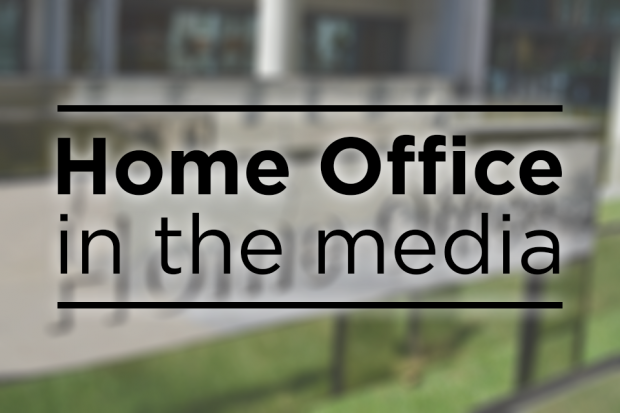 Today’s Home Office media stories include the Met Police asking YouTube to remove Drill music videos and the number of forced marriage incidents in the UK.
Today’s Home Office media stories include the Met Police asking YouTube to remove Drill music videos and the number of forced marriage incidents in the UK.
YouTube deletes rap videos after police claim link to stabbing
All the main papers report on figures obtained by the Press Association showing that Scotland Yard has in the past two years asked YouTube to take down 50 to 60 music videos, which they said were inciting violence. However, according to the reports, only about 30 have been removed.
The Telegraph says that Met Police Commissioner Cressida Dick has blamed social media for the surge in murders in London, singling out the drill genre of rap music for glamorising violent crime.
The Guardian reports that the Met Police has built up a database of more than 1,400 videos to use as an intelligence tool in an attempt to reduce violent crime.
The Independent carries a statement from a YouTube spokesperson saying that the company is working with the Met Police and the Home Office to understand the issue and take action. The Independent also references the Serious Violence Strategy and says that while the Strategy does not name drill music specifically, it states that social media has created an opportunity for rivals to antagonise each other, and that videos and posts “glamorise weapons and gang life”.
A Home Office spokesperson said:
This Government is determined to end the cycle of violence, which is having such a devastating impact on our young people and communities. Our new Serious Violence Strategy puts a stronger focus on steering young people away from violence whilst continuing to ensure the strongest possible law enforcement response.
The strategy examines how social media usage can drive violent crime, and how it can be used positively to counter violent messaging and help police take action against offenders.
It is already an offence to incite, assist or encourage violence online and we will continue to support police to tackle offences perpetrated online.
Surge in forced marriages
The Times and Guardian report that more than 3,500 reports of forced marriage were made to police between 2014 and 2016, according to figures obtained by the Iranian and Kurdish Women’s Rights Organisation. The papers note that the Non-Governmental Organisation Karma Nirvana received 8,870 calls about forced marriage in 2017, including more than 200 calls from children under 15. They report that since forced marriage was criminalised in 2014, there have been two convictions. The Guardian notes that forced marriage is not listed as an indicator of modern slavery under the National Referral Mechanism created by the Home Office.
A Home Office spokesperson said:
The UK is a world-leader in tackling these terrible crimes through the Forced Marriage Unit, which has provided vital support in almost 1,200 potential cases last year. Since their introduction in 2008, over 1,500 Forced Marriage Protection Orders prevented people from being forced into a marriage and to assist in repatriating victims.
Last week’s Forced Marriage conviction shows that these appalling crimes do not have to be a hidden crime and, with the courage of victims, perpetrators will be prosecuted.
